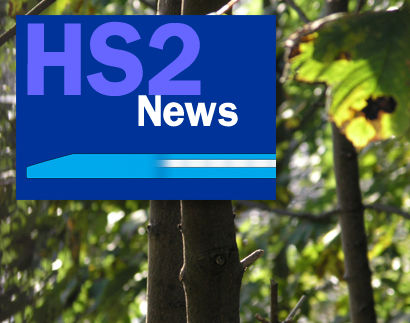ANOTHER group has added its voice in opposition to HS2, claiming that the scheme amounts to a 'grand folly'. But former transport secretary Andrew Adonis has warned that cancelling HS2 would be an act of 'national self-mutilation'.
The Institute of Directors says a survey carried out in early August has revealed that fewer of its members support the scheme, with 41 per cent of respondents now rating HS2 as 'important', compared with 51 per cent in August 2011.
The IoD is the latest organisation to give HS2 a thumbs down, following an earlier claim by the free market think tank the Institute of Economic Affairs that the real cost could be £80 billion, rather than the official budget of £50.1 billion, which includes a contingency allowance of £14.4 billion and £7.5 billion for rolling stock.
The IoD, like some other critics, wants the HS2 budget to be invested in alternative transport schemes, which it believes should include upgrades to roads as well as railways.
Its director general Simon Walker said: "Some of the specific claims that the Government has used to support its economic case for the project have been challenged by our members, who by and large do not feel that their business will benefit.
“We recognise that some of our members are in favour of this project, and there is a plurality of opinion amongst the business community. But overall there appears to be little enthusiasm amongst IoD members, not even in the regions where the benefits are supposed to be strongest. Indeed, our research shows that almost every region expects London to benefit the most.
“We agree with the need for key infrastructure spending, but the business case for HS2 simply is not there. The money would be far better spent elsewhere and in a way that will benefit much more of the country. Investment in the West and East Coast main lines combined with a variety of other infrastructure projects would be a far more sensible option."
HS2 Ltd chief executive Alison Munro responded: "Passenger numbers are continuing to grow on our main north/south rail arteries and the time when we reach capacity crunch is fast approaching. Network Rail have made it clear that they cannot deliver the required capacity by piecemeal upgrades to the existing network. There are after all only so many trains you can fit into a section of track, and the East Coast and West Coast main lines are virtually full already.
"IoD have not yet released their polling data but it is clear that their members are strongly in favour of increasing capacity with 80 per cent supporting investment in long distance trains and 41 per cent supporting HS2."
However, it is reported that Labour's support for the scheme is also weakening. Although leader Ed Milliband remains supportive, shadow Chancellor Ed Balls has warned that there 'can be no blank cheque' for the project, while former Labour Chancellor Alistair Darling has withdrawn his earlier support, claiming that investment on the scale required by HS2 would absorb all the funds available for railway improvements. He said: "My fear is, if you build this visionary project that you will have a nightmare on the rest of the network because you don't have the money to spend on it."
However, transport secretary Patrick McLoughlin responded that the real nightmare would come for the railway network if HS2 was not built. He told the BBC: "There's no doubt in the government's mind as to the importance of our railway network.
"The simple fact is, Mr Darling says that it would be a nightmare if we do HS2. It would also be a nightmare if we didn't do HS2 because what we have seen is massive growth in our railways over the past 20 years."
"I want to see freight continue to increase on our railways, I want to see more people using our railways, but there's a big capacity problem."
Labour's last transport secretary Lord Adonis is also maintaining that HS2 is essential. In an article in the New Statesman, he argued that the lessons of history had to be heeded, and that the country was still being held back because of its past failures to take decisions about major transport schemes.
He said: "We are still paying the price in the current impasse over a third runway at Heathrow when the international airports serving Amsterdam, Paris and Frankfurt have six, four and four runways respectively. It would be a similar act of national self-mutilation to cancel HS2 in 2015, six years into the project."


